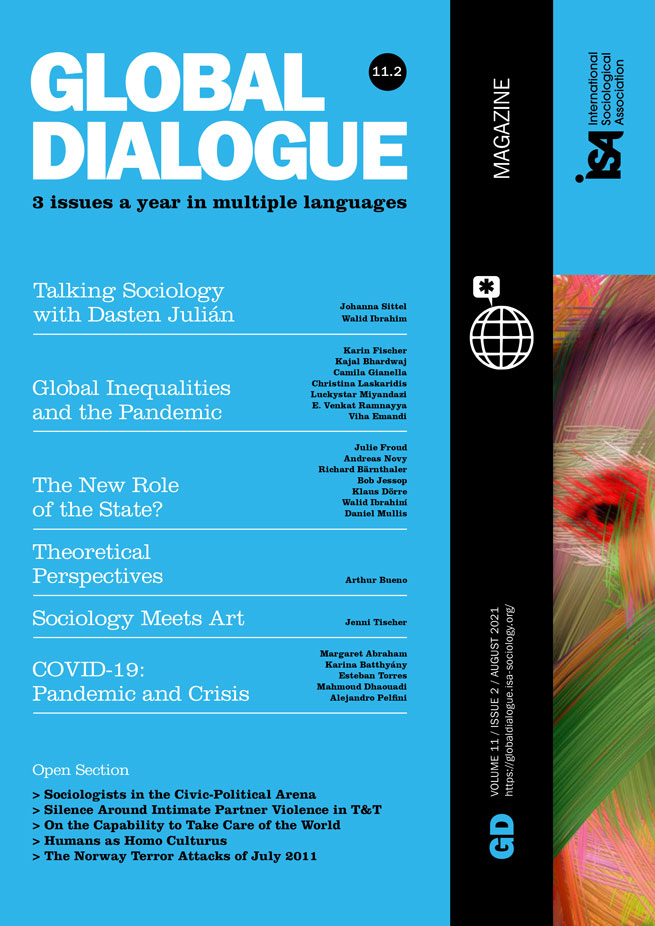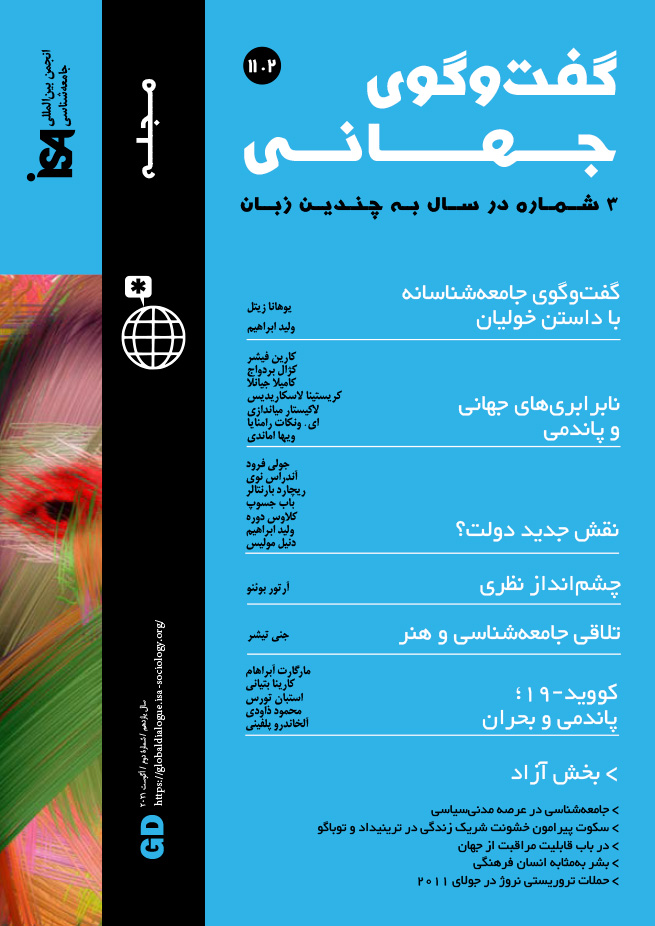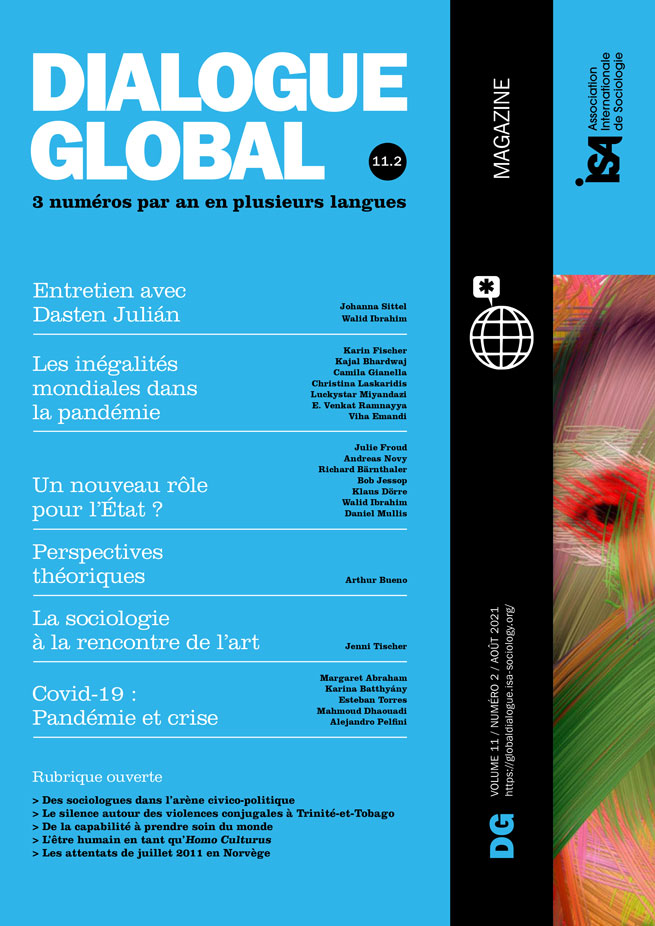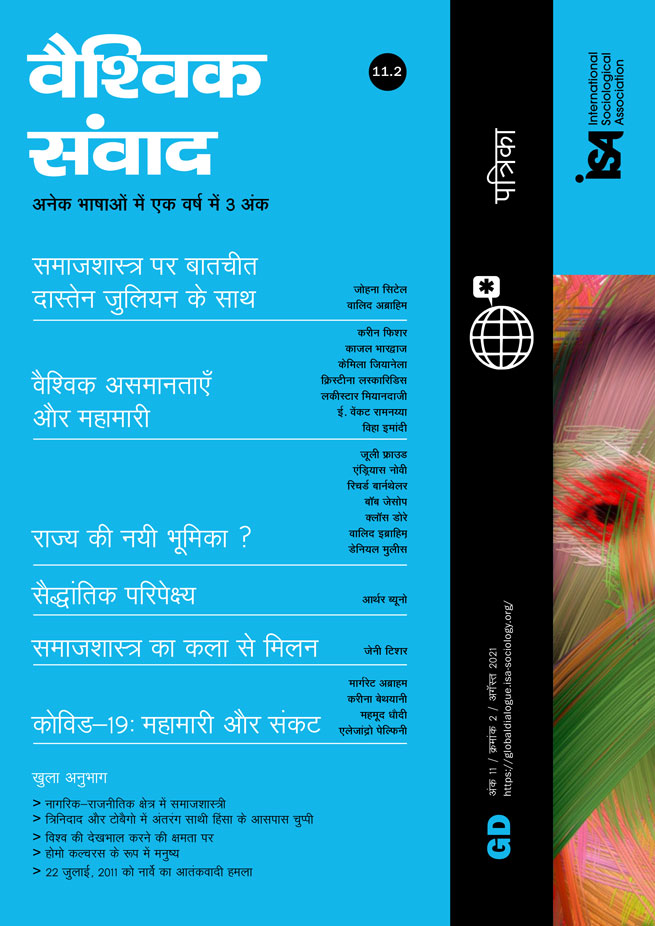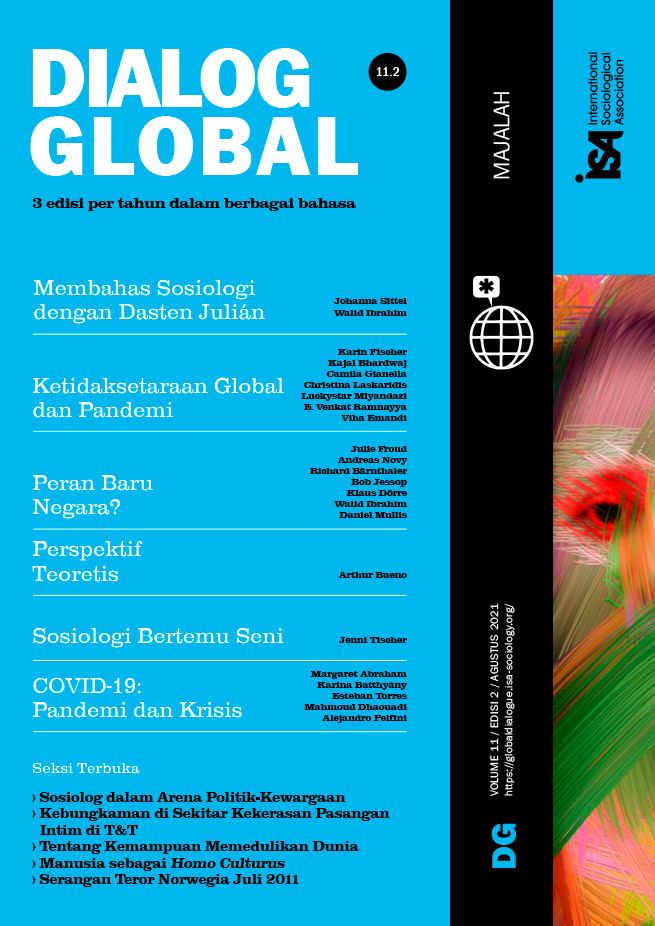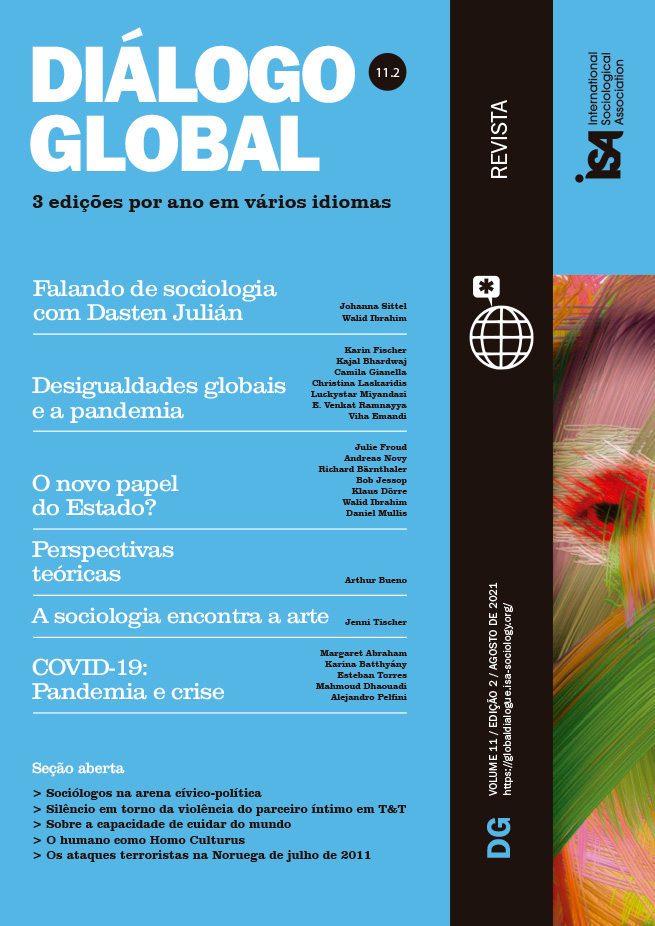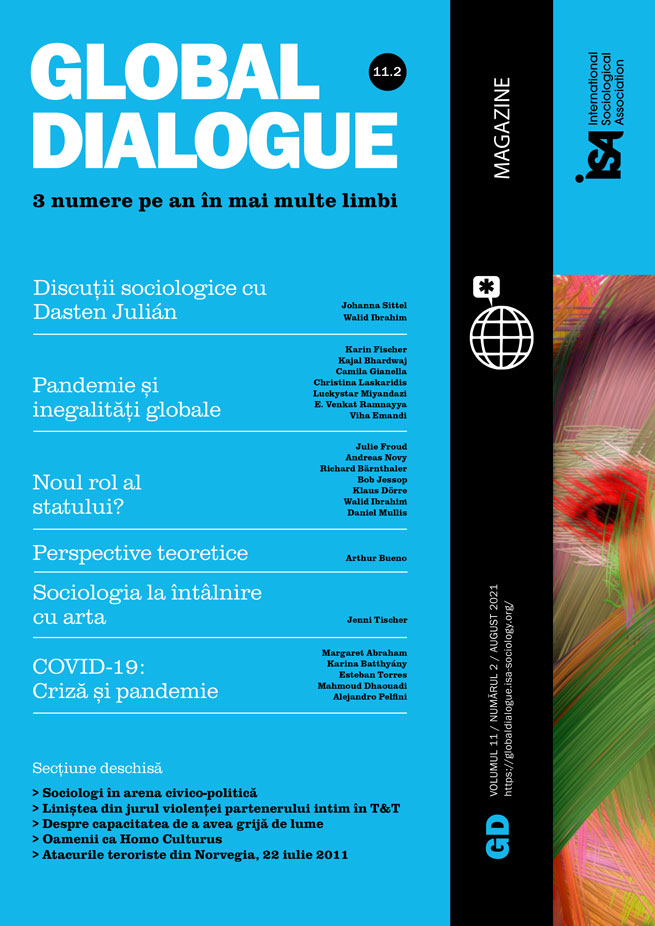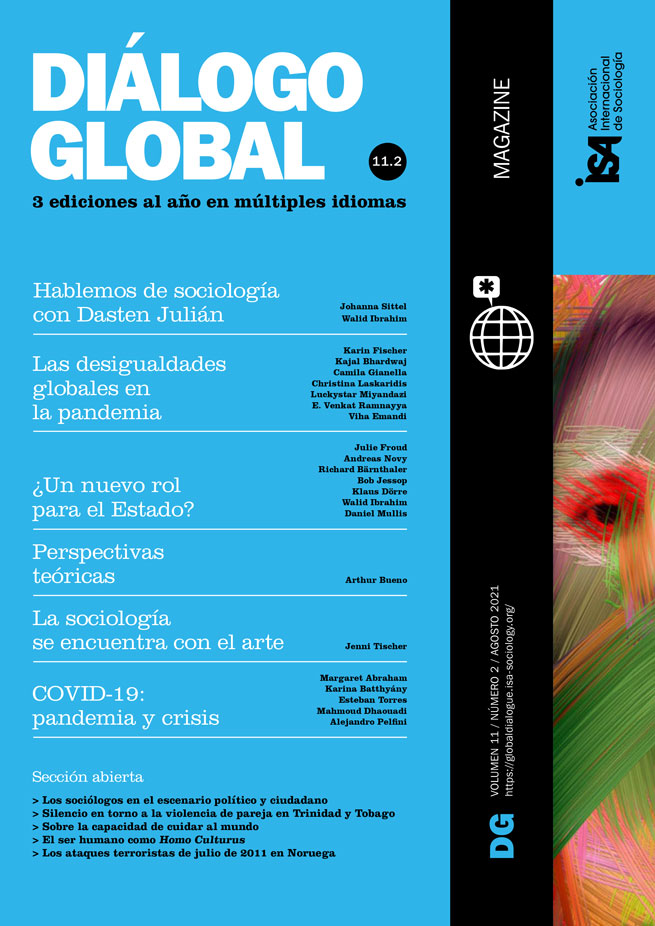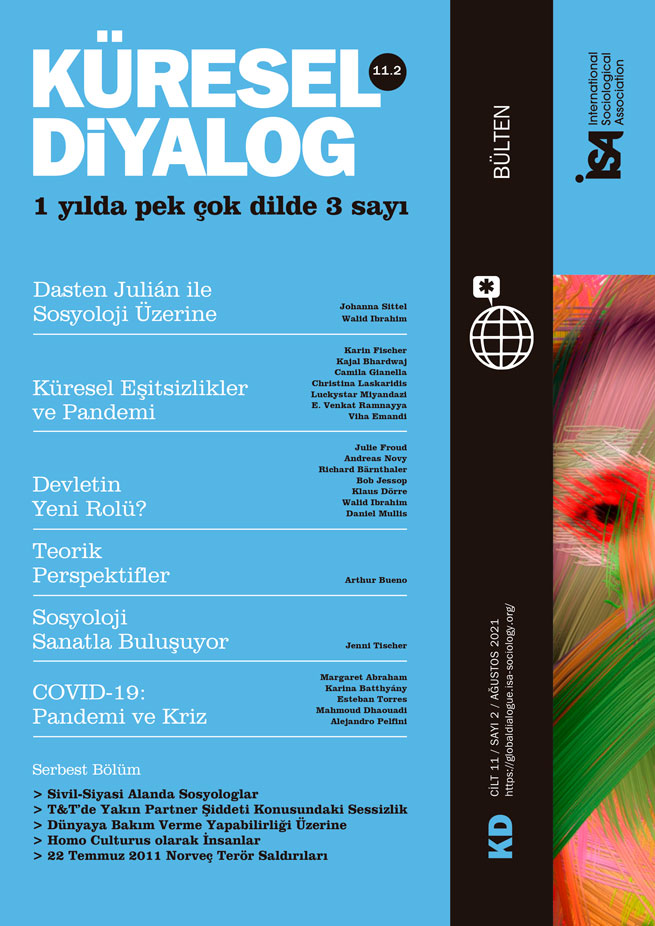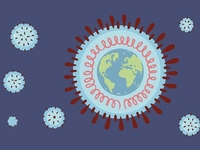Domestic Violence during the Global Pandemic

June 25, 2021
The fact that there is an increase in domestic violence during times of crisis and uncertainty has been well documented. The current COVID-19 global pandemic has been no exception. Since March 2020, coronavirus has led to worldwide “lockdown,” “stay-at-home,” and “shelter-in-place” orders, placing government mandated restrictions on people’s movements. While this has proven to be a necessary step in slowing the spread of the virus, it has caused what some are calling a “shadow pandemic” of domestic violence. The social isolation and distancing policies, vital to public health and safety, have ironically meant far less safety for those in dysfunctional and abusive relationships. The conditions of financial and mental stress, also caused by the pandemic, have led to abuse in some families where it did not previously exist. For those already experiencing abuse, it has compounded and exacerbated violence, in some cases leading to death.
Domestic violence is about power and control exercised by one individual over another and it can manifest in various ways: physical, emotional, verbal, sexual, psychological, and economic. While domestic violence occurs in all communities, however, it cannot be generalized. Each instance and relationship has its own context of differentials of power, privilege, and control. There also exist complex commonalities and differences of experiences based on the intersections of race, ethnicity, class, gender, sexual orientation, caste, culture, age, region, religion, and immigrant status. Research indicates that domestic violence has a disproportionate impact on marginalized groups at the micro, meso, and macro levels. The COVID-19 pandemic has proven this to be true as marginalized groups shoulder more of the burden in terms of job loss, financial hardship, and infection (for example, due to greater exposure through essential service work, and/or low access to healthcare).
Pandemic conditions
Since March 2020, reports from several countries have shown that the lockdowns and various restrictions put in place have increased and intensified gender-based violence, especially violence against women and children. The inability and reduced options available for those experiencing abuse to escape and leave the confines of their home has led to isolation from friends, families, workplaces, and other support networks. This has then created conditions where abusers have engaged in increased and persistent surveillance and control over their victims, and are able to monitor and constrain their behavior through restricted access to food, clothing, healthcare, and sanitary products. The pandemic has also, inadvertently, created barriers to the availability of much-needed community and mental health resources. Not just fear but also the lack of viable alternative safe options have forced victims of abuse to remain with their abusers.
The conditions created by the coronavirus have reduced many forms of institutional and social support for us all. While power and control continue to be at the core of domestic violence, causal factors have been increased through pandemic-related stresses and hardships including food insecurity, unemployment, fear and anxiety, frustration, depression, alienation, and grief. The closure of schools and childcare facilities has in many cases added to this stress and put strain on family resources at all levels; it has also increased exposure for children in abusive households. Communicating and seeking help becomes more challenging within the confines of the home, and particularly as public health and safety measures necessitate organizations to close physical offices and move online. However, COVID-19 has also led some organizations to begin thinking creatively about new ways to reach out and deliver much-needed support services.
Early in the pandemic this issue was acknowledged. Antonio Gutiérrez, the Secretary General of the United Nations, called on governments to take measures to address “the horrifying global surge in domestic violence” and to address women’s safety, even as they responded to the pandemic. Groups and community-based organizations and anti-violence organizations have been responding in several ways to support people experiencing domestic violence. In the US, the National Domestic Violence Hotline reported a 9.5% increase in total calls received between March 16 and May 16, 2020 compared to the same period in 2019. It also documented how abusers were using COVID-19 to further control and abuse. Manifestations of abuse and controlling behaviors by perpetrators now include denial of food as well as the withholding of essential health and safety items such as soaps, disinfectants, and protective masks. In some countries the agency of abusers has been increased as access to the legal system and other support systems such as police, shelters, and courts have been limited, and cases delayed. For immigrants this is further exacerbated by a fear of deportation. The role of the state and the policies and practices of governments during the pandemic around issues of internal and external migration have implications for those experiencing domestic and gender-based violence that often go overlooked.
As organizations addressing domestic violence comply with safety protocols during the pandemic, they have had to shift the ways that they work to support survivors. Kavita Mehra, Executive Director of Sakhi for South Asian Women in New York, explains:
"During the months of March and April, while shelter-in-place orders were in effect in New York City, Sakhi for South Asian Women was serving a community that was living in the epicenter of the epicenter. From the conversations that our team was having with survivors, especially those living in Brooklyn, Queens and the Bronx, they were seeing forms of violence escalating and becoming more extreme. Simultaneously they were managing the unexpected economic fallout from the pandemic, which resulted in unprecedented rates of housing, food and utility insecurity. The limited support from the federal package served as a relief to some survivors; undocumented survivors and/or survivors who still had a shared bank account with their abusers were left without protections. To support our community, Sakhi distributed over $130,000 in emergency aid and nearly 16,000 pounds of food from the months of March to October 2020."
Some domestic violence organizations found themselves not getting as many calls due to the challenges, fear, and lack of privacy faced by people within the constrictions and confines of the home.
What can sociologists do?
Addressing domestic violence cannot wait for this pandemic to pass. As sociologists, we must draw upon a contextual global sociology and come together with scientists, social scientists, policy makers, activists, and other stakeholders to develop an agenda to end gender-related violence and bring about structural change. We need better methods for data collection and reporting. We need to understand the social, economic, and political dynamics that are impacting experiences of domestic violence during COVID-19, and we must use that understanding to inform action. What prevents and assists women and children from getting out of abusive relationships during disasters, and what are the challenges and successes we have seen? Drawing upon an intersectional approach, we must use our knowledge, theory, and analysis, to highlight, act, and intervene. We need to support those organizations and initiatives that are finding creative ways of meeting this new reality. We must, ourselves, reimagine and reconfigure how we address domestic violence, and all forms of gender-based violence, during this period in human history. The women and children in lockdown, at home with their abusers, cannot wait.
Margaret Abraham, Hofstra University, USA, former President of the ISA (2014-18) and member of ISA Research Committees on Racism, Nationalism, Indigeneity and Ethnicity (RC05), Sociology of Migration (RC31), Women, Gender and Society (RC32), Human Rights and Global Justice (TG03) and Violence and Society (TG11) <Margaret.Abraham@Hofstra.edu>





